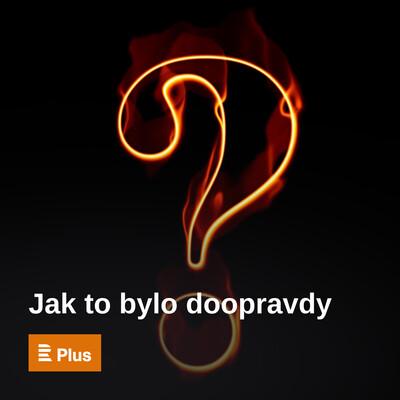Tuzex?In fact, it was a state -operated money washing machine, the historian Havlík corresponds to<
Performed by: historian Adam Havlík prepared by: Ivana Chmel Denčevová Director: Michal BurešThe stores of this network have been adored by some, damaged by others.On the one hand, a symbol of uniqueness, luxury, unavailability and, on the other hand, a symbol of the pooling, the black market and the people moving on the thin edge.
How is it possible that within the planned socialist economy there could be a sale for money that were not Czechoslovak crowns?The same attraction is why it was tolerated and tacitly tolerated, although Tuzex was connected "pieces truly criminal".
In some respects Tuzex was a state -operated washing machine on dirty money.historian Adam Havlik
Na otázku pořadu Jak to bylo doopravdy, jestli byl Tuzex běžným obchodem, historian Adam Havlik odpovídá: „Nebyl, už jen tím, jaké zboží nabízel ve srovnání s tuzemským vnitřním trhem.But also by working on market principles. In some respects Tuzex was a state -operated washing machine on dirty money.Because it was well known that a considerable part of foreign currencies that flowed to Tuzex and thus to the state cashier came from the black market.”
The state sucks foreign currency
The first Tuzex store was opened in Prague in July 1957 and the Red Law wrote that ”its mission is to meet the members of the diplomatic corps, foreign tourists and delegates as well as holders of foreign currency and currency.”
Tuzex|foto:Fotobanka ProfimediaBut the reality was easier - the Communist state needed to get foreign exchange or currency that it did not receive.And the Czechoslovak crown was not freely convertible currency. Host pořadu historian Adam Havlik vysvětluje: „Stát chtěl odsávat od lidí valuty, celý systém souvisel s devizovým monopolem a stát chtěl ovládat i tyto soukromé peníze svých občanů.”

Tuzex stores were gradually opened throughout the state and shoppers - those with a hallmark of some exclusivity - could buy here according to historian Havlík: ”Especially foreign brand products.The assortment was wide - from food, clothing, consumer electronics drugstores to cars.”
And adds: “For most people it meant luxury because they were goods unavailable and the opportunity to shop in Tuzex was a sign of some exceptionality.” Tato výjimečnost souvisela i s tím, čím platilo.
Tuzex vouchers or bony
Either they were directly foreign currency or special vouchers, or tuzex crowns, for which the name Bony was called.And it was the bonos that were followed by a completely strange sort of people who have been intensely responsible for the privately currency for the bonos and the bonos for the crowns.
Bony and Peace (1987) - Sample
Taxa in 2.half of 80.The flight was 5 Kcs for 1 Bon, while the average wage of Czechoslovak was around 2 thousand crowns per month.And if you wanted to have the right Jeansy from Tuzex, then they cost about 100 to 120 bones.
Simple numbers then say that throughout a month of work you could buy so four jeans.Only luxury, scarce, but often necessary goods, including calculators that were compulsory in secondary school studies, were not raised.
In a regular sales network completely unavailable. A tak se do kontaktu s veksláky dostávali i lidé, kteří se dostali „do úzkých” a sháněli kalkulačky pro své děti.Ironically, apparently most of them didn't even know they could get to justice for that too.
Sausages
Režim podobné kousky „tak nějak toleroval”, věděl o nich a veřejně je kritizoval.This was - now the cult - the film Bony and Peace, which was supposed to be criticized, not only the vekslárs, but also the system that punished ordinary infantrymen standing in front of Tuzex stores. Ty velké ryby ale „nechával být”.
Read as well
The story of Jewish tombstones in the Prague pavement: it meets heroes, collaborators and sentens
Thus, the VEKSLAcs had extraordinary earnings and officially often disabled pensioners.Today's gaze is a sad dot that they just entered with an extraordinary vigor to 90.The years of the liberalization of the market, transformation and privatization took place.They got into exceptional positions because they just had money.
Historian Havlík says to this: “A substantial part of Tuzex's income generated a black market that was integrally associated with the existence of the company, which was a public secret before 1989.” O tom svědčí také zcela zřejmý a nesouměrný počet lidí, kteří v Tuzexu nakupovali a počet těch, kteří se legálně k devizám mohli dostat třeba svou prací v zahraničí, autorskými a uměleckými právy, dědictvím ze Západu či dary od příbuzných a známých.
Listen to the whole program of Ivana Chmel Denčevová in the audio.


 Tags:
Tags: Prev
Prev







